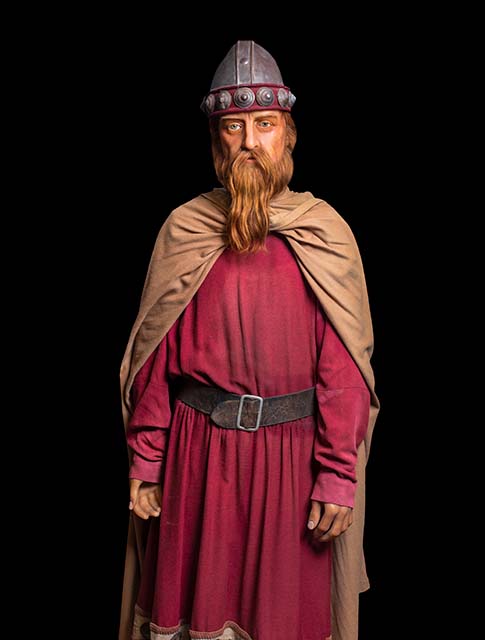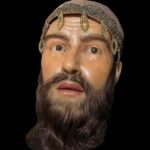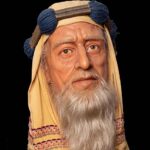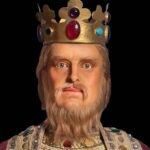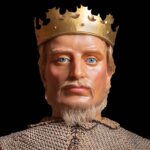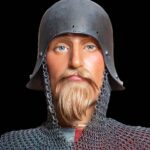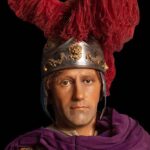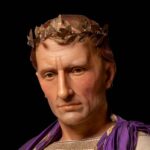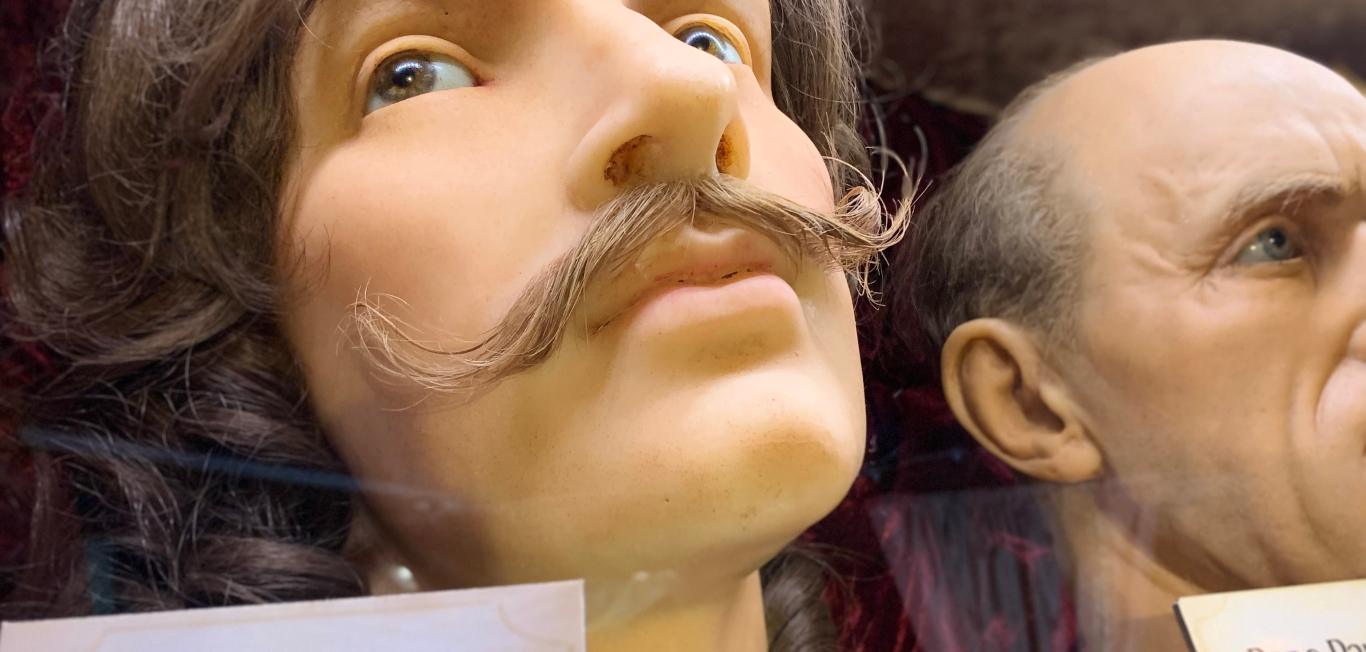Who Was Alfred the Great?
Alfred the Great was born in 849 and lived for 50 years as the ruler of Wessex, one of the kingdoms in southwestern England. Notably, King Alfred’s history shows that he was not expected to become king because he was the youngest child of AEthelwulf, West Saxon’s king, until 858. During his childhood, Alfred the Great visited Rome twice, first as a kid aged four years and later in his parent’s company. After their parents’ demise, Alfred’s three senior brothers ruled in tandem and died before Alfred rose to power in 871. During the leadership of his brothers, the number of invasions from Scandinavian raiders increased. Massive Viking troops began to spend more time during winter in Britain and northern parts of Francia, resulting in West Saxons losing more than four battles between 870 and 871.
After securing several victories, King Alfred of Wessex signed a peace treaty in 880 with Guthrum, but the fighting persisted throughout his reign. However, the West Saxons did not endure disastrous defeats like in the past. Moreover, studies reveal no evidence that King Alfred of Wessex burnt cakes during his leadership; his reign is notable for promoting learning and art. This leader is claimed to have lamented that before the attacks, the churches throughout his territory were filled with treasures and books, but this was on the decline. King Alfred the Great proposed the people work together to restore things to their previous state.
DID YOU KNOW?
Alfred the Great's reign is notable for promoting learning and art.
Interesting Facts
Alfred was extremely religious
Research shows that during his childhood, Alfred the Great visited the Pope, and the tour, he believed, made him receive blessings with the right to the throne. King Alfred of Wessex established monasteries and persuaded foreign monks to join or use them.
He was never meant to be king
Although Alfred the Great did not control religious practice in his kingdom, he strived to appoint highly qualified clergy members to lead the church. Additionally, “he was never meant to be king.” Notably, Alfred had three elder brothers who developed and took over the kingdom before him. Even after AEthelred’s demise, his previous contract with AEthelred saw him rise to power. He prevented several Viking attacks, something Anglo-Saxons had wished for in the territory’s leadership.
He was a master of disguise
A legend claims that Alfred, posing as a humble musician, snuck into the Viking-occupied city of Chippenham before the battle of Edington in AD 878 to obtain intelligence on the Viking armies. Before the night was through, he managed to escape and return to the Wessex army, keeping Guthrum and his men in the dark.
He brought England back from the brink
King Alfred succeeded and traveled to Wessex, equipping his troops with ways to defeat the enemy. Having survived the war in AD 878, Alfred the Great and his warriors, disguised as Vikings, started harassing the invaders. The news of his survival led to more territories gathering armies and sending support that helped him to regain his throne.
He was the only English king to be called ‘Great’
He created the first English fleet, built a new prominent code of law and preserved English civilization after it was on the verge of collapse. He was a man deserving of the title “the Great,” as he reigned with justice and integrity.
Early Life of
Alfred the Great
Alfred the Great served as the King of Wessex for many years. He fought numerous Viking invaders during his reign and was influential in reviving learning and writing using the Old English dialect. Considering that he was the youngest of AEthelwulf, the leader of West Saxon, he was not expected to ever serve as king (British Library, 2022). He was highly religious, as evident by the fact that even before the age of five, he had traveled to Rome to visit the Pope, who he claimed blessed him with the right to rule his people. He later saw this blessed land with his parents in 871 (British Library, 2022). It is reported that, throughout his life, Alfred the Great suffered from debilitating diseases that adversely affected the quality of his life. The illnesses sometimes struck him at awkward places and in public areas like his wedding. British Library (2022, para. 3) reports that the situation survived through “descriptions that do not allow us to pinpoint Alfred’s disease, but Patriarch Elias of Jerusalem” sent him vital guidelines regarding his medical remedies. Thus, regardless of his flawless history, his health adversely affected his leadership.
DID YOU KNOW?
It is reported that, throughout his life, Alfred the Great suffered from debilitating diseases that adversely affected the quality of his life.
King Alfred’s most notable success story was his victory over the Vikings. British Library (2022) claims that during his three brothers’ reigns, Scandinavian raiders and Viking armies increased their operations in the region, resulting in a situation where Alfred the Great was almost captured. After succeeding, Alfred signed a peace treaty with Guthrum, which helped ease the number of attacks. Contrary to the popular myth, there is no evidence that Alfred, the King of Wessex, burnt peasant cakes (British Library, 2022). Alfred the Great’s reign is credited with storing the desire to learn and art associated with the English community. This was why he appointed highly learned clergypersons during his reign.
The Importance of Literacy and Learning to Alfred’s Rule
It is imperative to observe that the Viking attacks and Scandinavian raids left the churches and other areas with little to no books or treasures such as art. Alfred the Great lamented that this had led to a sharp decline in education and literacy in the region. Martinez (2022) reports that Alfred the King of Wessex’s unwavering devotion to learning describes the period in which he led the nation after enjoying success at Edington in 878. After this, Alfred vowed to enhance his knowledge and ensure educational amendments in his territory (Martinez, 2022). While he showed a great desire for learning in his childhood, Alfred the Great could not commit himself to the same path until his adult years. Notably, his mind-boggling ascent to power foisted massive military responsibilities on him, and the early phase of his rule was shaped by efforts to prevent Danish attacks (Martinez, 2022). Between 878–885, King Alfred of Wessex started assembling a set of scholars to remedy the illiteracy, or lack of learning, that was prevalent in England. To him, education allowed people to understand how they could lead their lives based on God’s doctrines (Martinez, 2022). He believed that such wisdom was essential for serving justice during his reign.
Late in Life
Alfred had an incredible history of fighting until 885, when they prevented an invasion of Kent, which was made primarily by the Danish army and aided by the East Anglian Danes. Whitelock (2022) reports that, by 886, Alfred gained the offensive and took control of London, a success story that brought all English people under the reign of the Danish. It is imperative to understand that this capture of London also allowed the reconquest of more parts. Studies show that the failure of the Danes to advance further against Alfred was primarily fueled by the numerous defensive measures he had established during the battle (Whitelock, 2022). He strengthened old forts while building new ones in strategic locations, with an overall clocking manning.
King Alfred of Wessex also sustained alliances with Mercia and Wales, who supported his reign and supplied troops for his soldiers in 893. Alfred was also a competent administrator, who focused on leading justly and took measures to safeguard minorities from the constant oppression of corrupt judges (Whitelock, 2022). His death was caused by significant complications due to Crohn’s disease that had adversely impacted his health for years.
DID YOU KNOW?
Alfred was also a competent administrator who focused on leading justly...
FAQs
What were Alfred the Great’s military achievements?
Some of the notable military accomplishments of Alfred the Great included his victory at Edington, which ended the attacks by the Vikings; he also reclaimed England from the rule of the Danes and signed peace treaties that further lowered the number of invasions in the region. Alliances with the Welsh administration also increased his success in protecting the territory.
Was there really a King Alfred of Wessex?
King Alfred lived between 849 and 899. He is credited as the British ruler who did everything possible to protect the nation from the growing number of invasions by the Danes and the Vikings. He emphasized that learning was crucial to leadership and ethical living according to God’s guidance.
Alfred had books translated from what language into English?
To meet his quest for knowledge, Alfred the Great searched for the best scholars from various parts of Europe. These professionals came with Latin books to be discussed at the court and later translated into English. For Alfred, this was the best way of addressing society’s declining literacy and learning levels.
What did Alfred the Great do with the Vikings?
Alfred the Great disguised himself as a musician, infiltrated a Viking military zone, gained intel about the operations and used it to win the battle. Furthermore, with support from the Mercies and Welsh troops, he successfully prevented their attacks, making his territory safer. He signed peace treaties that enhanced order in the region.
How did Alfred the Great become the king of the Anglo-Saxons?
Although Alfred was never meant to be king, considering that he had elder brothers who had to rule before him, the deal he made with his third brother allowed him to rise to power. He also believed that his trip to Rome at age four with his father increased the odds of him being the ruler.
